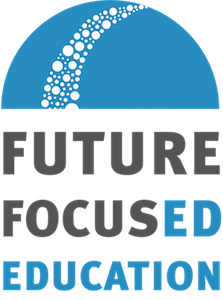How to Remodel Our Assessment System: Part I
By Deborah Good, Director of Organization Learning and Research | October 23, 2018
Now think back to a time in your life when you had a positive experience with assessment. The assessment might have been formal or informal, maybe at school or in your professional life—anytime when you were being evaluated in a way that was meaningful to you. I invite you to visualize it. Who was with you? What were you doing? How did your body feel during the assessment? What thoughts did you experience? What emotions?
One week ago, on Thursday, October 18th, 40 people from across New Mexico gathered in a room in Santa Fe and started their day with this grounding exercise led by facilitator Ian Esquibel of Oak Hill Consulting. As Ian led us in visualizing, I thought back to a performance review at a past job. It was a positive experience because the evaluation involved a one-on-one conversation with my supervisor. I received personalized affirmation and feedback, and I was also given the opportunity to talk about my own perceptions of strengths and areas for growth.
Others in the room had a harder time with the visualization exercise because their experiences with assessment have been overwhelmingly negative. What about you?
Where Do We Begin?
The convening on October 18 was co-hosted by Future Focused Education and Santa Fe Public Schools. Michael Soguero of Eagle Rock joined Ian as a co-facilitator. The day brought together education leaders from across New Mexico, including school and district leaders, community organizations, education advocates, and state officials, to begin developing a new vision for assessment in our state. Participants worked in small groups to discuss current assets and challenges, explore differences of opinion, and imagine a possible path forward. The day’s discussions will inform a set of recommendations for the state’s next governor and secretary of education.
Assessment reform is not a straightforward endeavor. There are a variety of approaches teachers, districts, and states use to assess student learning and growth, and experts can argue about the pros and cons of each.
In New Mexico, day-to-day instruction and classroom assessments can feel disconnected from the state-mandated End of Course Exams (EOCs) and the Partnership of Readiness for College and Career (PARCC)—both of which are used in the state’s systems for teacher evaluation and school accountability. A balanced system of assessments should include multiple forms of assessment that provide information to stakeholders at different levels and for different purposes, without the state assessments holding the primacy and influence they do in New Mexico.
At the end of the day, the needs and success of our students matter most. Research nationally shows that student engagement is down. Too often they don’t understand what school learning has to do with their real lives. Some students, including in New Mexico, have spoken out against the hours of standardized testing they are required to sit for without a clear benefit to them. What would it mean to put students at the center of our state’s assessment system?
What the Future Looks Like
During last Thursday’s convening, we asked participants to try their hand at drafting a vision statement for New Mexico. We asked, “What do we want New Mexico's assessment landscape to look like in five years?” While some differed on specifics, we heard an emerging vision for assessments that are authentic, culturally relevant, rigorous, and holistic. Here’s what some had to say:
“I would like for New Mexico's assessment landscape to be more reflective and inclusive of the lived experiences of our residents, embrace the aspirations of our communities, and support schools that practice assessment as continuous improvement for all,” said one participant.
“I envision innovative assessment which includes multiple ways for students to demonstrate proficiency,” offered another.
A third recognized the different purposes assessments can serve for different parties: “Users of assessments will have a clear understanding of the proper uses of the assessments and will limit their evaluations to the proper scope of the assessment.”
Some also elevated the importance of self-determination for local and indigenous communities, especially given a history of policies that have consolidated significant decision-making authority in Santa Fe and Washington. As Tony Monfiletto, Future Focused Executive Director, has said, “We need an assessment system that is adaptable enough to include the local wisdom of our communities. It should reflect what they believe is important for their graduates to know and be able to do to make their communities healthier and more prosperous.”
We know that many across New Mexico are unhappy with the current assessment system in the state, which relies heavily on standardized and primarily multiple-choice tests. High-stakes standardized tests measure some but not all of what communities consider important, and are limited by their format which largely omits real-world applications of student knowledge. The tests have also meaningfully shaped curriculum and instruction to focus on basic reading and math proficiency, sometimes at the expense of a broader and deeper set of skills students will need for success.
New Mexico is poised to join other states nationwide in building an assessment environment that is relevant and engaging to students, reflects local context, assesses deeper learning and a broader set of competencies, responds to community and industry demands, provides meaningful data to diverse stakeholders, and prepares young people for a dynamic and uncertain future. Will you join us?
Future Focused Education would like to thank Dr. Veronica Garcia and Santa Fe Public Schools for co-hosting the October 18 convening, the Assessment for Learning Project for grant support, and the Center for Assessment for attending the convening and providing helpful national context.
Stay tuned for part two in this series, including a formal report of these findings and policy recommendations. To stay in touch and learn more about next steps, sign up for our e-newsletter or contact [email protected].


